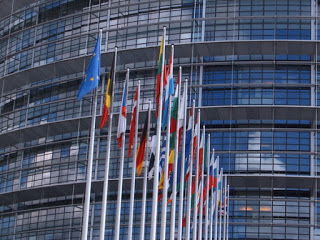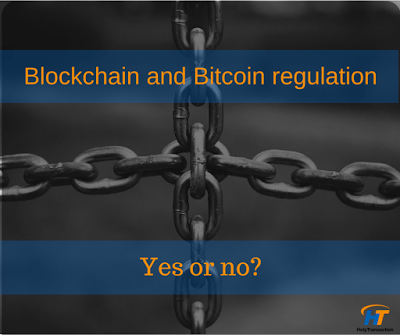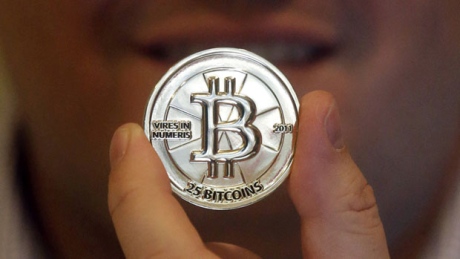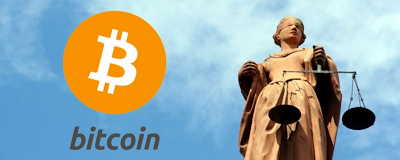
Cryptocurrency in Geopolitical Conflicts: An Emerging Tool
Cryptocurrency in Geopolitical Conflicts: An Emerging Tool
Cryptocurrencies, with their decentralized nature and global reach, have found a unique place in the realm of geopolitical conflicts. As nations and non-state actors seek new methods to finance their activities, bypass sanctions, and engage in cyber warfare, cryptocurrencies are increasingly becoming tools of choice due to their anonymity and ease of transfer.
Sanctions Evasion and Fundraising
One of the primary uses of cryptocurrencies in geopolitical contexts is to evade economic sanctions. Countries like North Korea and Iran, which face heavy international sanctions, have reportedly turned to Bitcoin and other cryptocurrencies to fund government activities and purchase imports. For example, North Korea has been accused of using sophisticated cyber units to steal Bitcoin as a means to support its economic needs and fund its nuclear program.
Moreover, cryptocurrencies are also being used by non-state actors, such as terrorist organizations, to raise funds. Groups like ISIS have reportedly used Bitcoin to fund their operations, leveraging the anonymity provided by blockchain technology to receive donations from supporters globally without detection.
Cyber Warfare and Cryptocurrencies
Cryptocurrencies also play a role in cyber warfare, serving as both a target and a tool. On one hand, state-sponsored hackers have targeted major cryptocurrency exchanges to steal funds. This not only provides financial resources but also destabilizes the cryptocurrency markets, potentially causing economic disruption in target countries.
On the other hand, cryptocurrencies can facilitate the ransom payments in ransomware attacks, where attackers lock the victim’s data or systems and demand a ransom, often in Bitcoin, to unlock it. Such tactics have been used against critical infrastructure, governments, and private entities, causing significant disruption.
Challenges in Tracking and Regulation
The decentralized nature of cryptocurrencies poses significant challenges for governments trying to monitor and regulate their use in illegal activities. While blockchain technology does provide a ledger of all transactions, the pseudonymous nature of these transactions makes it difficult to identify the individuals involved. This has led to calls for international cooperation and regulatory frameworks to combat the misuse of cryptocurrencies.
Apart from direct conflict, cryptocurrencies can be used as tools of economic warfare. By potentially undermining a country’s currency, they can destabilize economies without a single shot being fired. For example, in countries facing hyperinflation, cryptocurrencies like Bitcoin can become alternative currencies, which might undermine national currencies and fiscal policies.
Final Thoughts
As the digital and physical worlds become increasingly intertwined, the role of cryptocurrencies in geopolitical conflicts continues to grow. While they offer revolutionary potential to circumvent traditional financial systems, they also pose significant risks and challenges. The international community may need to develop more robust mechanisms to manage the rise of cryptocurrencies to prevent their misuse in geopolitical conflicts while harnessing their benefits for legitimate economic activities.
This analysis highlights the dual-use nature of cryptocurrencies in modern geopolitical scenarios, demonstrating both their potential for innovation and their capacity for disruption.
Open your free digital wallet here to store your cryptocurrencies in a safe place.

Why is Estonia Considered Crypto Capitol of Europe?
At this point, cryptocurrencies will play a major role in the global financial industry soon. Millions of people are already using them, and these digital assets had a massive breakthrough in 2021. What’s even more important is that many companies and countries are starting to accept them.
In a world’s first, El Salvador became the only country to fully adopt Bitcoin and even use it for various trading purposes. That allowed the cryptocurrency to grow and stabilize itself even more. Even though many would think that El Salvador will be leading the pack in the crypto world, that did not concern Europeans too much.
Why? Because they already have a country that kind of regulates these digital assets and allows them to trade with them. That country is Estonia, and, in this article, we’ll be looking at why Estonia is considered the crypto capitol of Europe. Let’s dive into the details.
Estonia Was the First Country to Regulate Cryptocurrencies
First, Estonia was among the first countries in the world to start regulating cryptocurrencies. It started accepting them around a decade ago and since then, became a haven for all crypto traders. That ‘tradition’ was kept over the years as all new traders in the continent are advised to invest in crypto here.
Aside from trading and making a profit, crypto users keep these digital assets to pay for services/products and for entertainment. One of the most popular entertainment types that you can participate in with crypto is online gaming, specifically casino sites.
Since online casinos operate on the Internet now and cryptocurrencies are fully optimized for online use, they were more than fond of allowing registered players to deposit and withdraw money with them.
Estonia Is Fond of Using Technology to Its Advance
Next up, Estonia is well-known for leaning towards technology. After all, apart from being known as the first country in Europe to regulate cryptocurrencies, it is also the first country in the world to introduce the e-Residency program, which is like digital citizenship.
This allows participants to use numerous services from the government, including starting an EU-based company without the need of travelling to Estonia.
When it comes to cryptocurrencies and payment methods, one interesting fact about Estonia is that it is a cashless society. Statistics show that 99% of all transactions are conducted digitally. Residents here are always looking for more efficient online payment methods and that is what led the country to cryptocurrencies.
As you may know, crypto transactions are instant, whereas transactions with regular payment methods can take up to a few days to be completed. That makes these digital assets perfect for paying online and conducting business.
The industry is Well-Regulated in the Country
Lastly, the Estonian government has recently tightened regulations as the Financial Intelligence Unit, which is under the wing of Estonia’s Finance Ministry, is now able to revoke crypto licenses in efforts to fight money laundering.
That makes this country extremely safe for all those who are willing to invest in cryptocurrencies. Extra security is always welcomed, especially in times when online scams are proving to be a massive problem. As data shows, more than $240 million has been lost in scams so far in 2021. Millions of people fall victim to this problem and all of us want that extra security layer.
Thanks to the fact that cryptocurrencies utilize cryptography, which provides a certain level of online anonymity, users are safer, but with Estonia’s regulations, that security is taken to the next level.
Open your free digital wallet here to store your cryptocurrencies in a safe place.

Bitcoin regulation in Europe: “it’s too early”

During a recent event held by the European Parliament, members talked about new technologies including the Blockchain and Ethereum and Bitcoin Regulation.
According to them, the European Parliament will have to regulate and monitor the new tech but “it’s too early to intervene at this stage, because we as legislators don’t yet see sufficiently clearly to know what the main issues are going to be – so in order to not to stifle innovation, we don’t want it to be now.””, said MEP Jakob von Weizsäcker.
So, the EU wants just to monitor blockchain and smart contracts in order to allow developers doing their job.
Also, MEP Eva Kaili from Greece explained that regulation is necessary to protect citizens, but EU doesn’t want to suffocate innovations.
“[In] 2008 when the crisis started in the European Union, especially in my country [Greece], people lost trust in banks and in the politicians. I woundn’t blame them because we didn’t protect them and the reaction was that some young people that we don’t really know discover this technology that actually makes unnecessary to have banks, politicians and intermediaries. So the potential is there, but it is still under progress”.
Also, she continues by saying the following:
“Blockchain is not just bitcoin and bitcoin is not just blockckhain. We need to understand how to protect citizens because if we help them trust this technology, they will actually start to using it. I do believe that banks will outsource a lot of their services,” she said.
Bitcoin regulation to regain trust by citizens
“We’ll have to educate citizens on how to use it […] Hopefully, [bitcoin regulation] will come and we’re going to try to protect the technology and not to stop it. I know that usually politicians and banks don’t want to change and they want to keep control, but I think this technology is unstoppable and we have to give control back to the citizens and maybe this way we can regain some trust,” Kaili argues.
Watch the full conference video here.
Open your free digital wallet here to store your cryptocurrencies in a safe place.

Polish Bitcoin regulators recognized it within the country
Polish Bitcoin regulators decided to recognize the digital currency within the country.
In fact, the country’s Central Statistical Office (GUS) revealed its decision to recognize the trading and mining of digital currencies as an official economic business in Poland.
This is the reason why from now on companies active in the Polish industry are be able to register themselves with the agency.
Businesses who are involved in cryptocurrency trade and production activities can now apply to obtain an official PKD 64.19.Z registration, the GUS explained in a press release.
This news highlights a significant step forward for industry workers in Poland where currently there isn’t an official regulation or legislation about neither bitcoin or other digital currencies.
Earlier this year the Polish Ministry of Finance released a few documents that expressed the status of legality for bitcoin and cryptocurrencies in general.
Also, in a statement published back in November, the finance ministry commented what follows:
“there is a lack of a general, legal definition of virtual currency in international, European and national law”.
This explains that digital currencies are subjected to income tax, even if they are not subject to any separate regulation according to the Polish legislation.
Polish ministry also commented:
“It should also be stressed here that their use in Poland is fully legal.”
Polish Bitcoin studies
To explore the legal and financial implications of the use of the Polish Bitcoin use, government of Poland has created a new group of blockchain and virtual currencies experts.
This Polish Bitcoin task force was established under the surveilance of the Polish Ministry of Digital Affairs, and according to thePolish government’s program titled “From Paper To Digital Poland“ that was written by the Cabinet back in June 2016.
This task force will be responsible to prepare analyses for use by other government agencies in their legislative work and the possible chance of a Polish Bitcoin and digital currencies regulation is one of its goals and interests.
Open your free digital wallet here to store your cryptocurrencies in a safe place.

Japan Bitcoin Regulation for 2017
Japan Bitcoin Regulation
Japan Bitcoin Regulation will take place in 2017 and it wants to drop an 8% sales tax on Bitcoin purchases.
This move will take effect in July 2017, according to a document published by CoinDesk.
Although the proposal has yet to be approved by senior Japanese government, an annual tax document written by the ruling Liberal Democratic Party and the Komeito party was revealed today. Thanks to this document now we know more details on the proposal suggested back in October by the Ministry of Finance and the Financial Services Agency.
The tax remains in place today.
If approved by the Cabinet, the plan will institute a period of grace in June 2017, with the tax exemption becoming official the following month.
The document just released is the result of discussions among government stakeholders first reported by the regional news service called Nikkei.
Local startups have already responded positively to this Japan Bitcoin regulation.
CEO of exchange service Quoine, Mike Kayamori, commented that the plan to drop the sales tax was expected, but it represents a good message to the cryptocurrency community.
Kayamori explained to CoinDesk:
“It’s a huge relief for us. Customers don’t have to pay tax for each transaction. Hope this becomes standard practice.”
This move follows a very busy year for Japan on the exchange front, as the government decided to request registration for all the companies that handle bitcoin sales within the Japanese country.
Discussions around exchange regulation began last year when government ministers tried to obtain information from exchange services.
Also, a deliberations took place last year because of the collapse of Mt Gox, a bitcoin exchange imploded in 2014, causing hundreds of millions of dollars lost by the exchange users.
Document originally shared by CoinDesk.com on Scribd. Unfortunately it is available only in Japanese language.
Open your free digital wallet here to store your cryptocurrencies in a safe place.

Uganda Bitcoin Regulation
A UN organization related to criminal justice problems published today a few details about a new meeting on bitcoin and digital currencies with the aim of a Uganda Bitcoin Regulation.
Organized in Kampala on 7th July, the meeting was supported by the United Nations African Institute for the Prevention of Crime and the Treatment of Offenders (UNAFRI), the Bank of Uganda and the University of Birmingham Law School.
Dr. Maureen Mapp of the University of Birmingham Law School who partecipated at the event, explained to CoinDesk that the main goal of that event was establishing a basis for a Uganda bitcoin regulation.
Uganda will be one of the first African countries to regulate bitcoin.
Also, Mapp said the effort grew out of a digital currency research project realized with the Commonwealth Secretariat that showed her how Ugandan public officials didn’t know anything about the benefits and risks of the use of virtual currencies.
“I was inspired to engage with policy makers and regulators in order to investigate whether states could develop policies and regulation that encourage innovation while protecting the private rights and interests of users of virtual currencies.”
The goal, she explained, was building awareness and creating a good basis for future discussions.
Thanks to the Ugandan central bank and UNAFRI, Mapp began to contact a few stakeholders in Uganda to put together what became the meeting held in Kampala.
Among the outcomes of the meeting is a think tank dedicated to the “technological, policy, pluralist, ethical and legal issues” about digital currencies, with the organizations and representatives who attended the July meeting.
Those involved also developed a draft for future discussions between private and public stakeholders, which was published earlier this month by UNAFRI.
Next steps will include the creation of a second meeting, set to take place on the same date in 2017.
“The legal and regulatory environment is moving towards embracing the technology so as to harness its benefits and to promote innovation,” she explained.
Source: Coindesk.com
Open your free digital wallet here to store your cryptocurrencies in a safe place.

Switzerland Bitcoin Regulation will arrive next year
Switzerland Bitcoin Regulation might arrive next year.
Recently its national railway service “have jumped on the bitcoin bandwagon”, as explained by Coindesk, so now it’s time for Switzerland to start regulating fintech and digital currency.
A few days after the Swiss railway-related announcement, as SBB decided to sell bitcoin through its network of ticket kiosks – the Federal Department of Finance (FDF) announced its plans to regulate fintech with the goal of introducing a new regulation next year.
Key elements include plans for a new kind of license geared specifically toward fintech companies and a so-called regulatory “sandbox” for experimental firms. Under the proposed regime, the Financial Market Supervisory Authority would become the primary regulator of fintech firms working in Switzerland.
In a press release, the FDF explained that it will guide more researches about bitcoin and other digital currencies and it will study the distributed ledger broader applications .
The company explained:
“The FDF should conduct additional clarifications in cooperation with the interested authorities on reducing further barriers to market entry for fintech firms, also those outside financial market law (e.g. legal treatment of virtual currencies and assets).”
During a recent speech, Ueli Maurer, Swiss Finance Minister, commented that the proposed Switzerland Bitcoin regulation would help to attract more brands – even if the nation positive attitude has already attracted the attention of several blockchain-related startups to make their home in the country.
“We assume that with the steps we have prepared and the commitment we have to the overall financial services industry we can provide a solution that puts us among the top (countries) in the world that regulate this,” he explained.
Read more here about the Switzerland involvement in the fintech sector.

Open your free digital wallet here to store your cryptocurrencies in a safe place.

Australian commission said blockchain can help governments regulation
How to adopt the Blockchain
Australia is in the vanguard
Open your free digital wallet here to store your cryptocurrencies in a safe place.
Japan wants to regulate Bitcoin as Currency
About the author: Amelia Tomasicchio is a writer and a journalist of Bitcoin-related news and articles. She started writing about Bitcoin in 2014 and she graduated in Rome with an essay about movie industry related to Bitcoin.
Open your free digital wallet here to store your cryptocurrencies in a safe place.

European Union wants to monitor virtual currencies
In fact, a few days ago Europol concluded that there is no connection between Bitcoin and terrorism: “Despite third party reporting suggesting the use of anonymous currencies like Bitcoin by terrorists to finance their activities, this has not been confirmed by law enforcement”, said Europol.“Virtual currencies and their underlying technologies can provide faster and cheaper financial services, and can become a powerful tool for deepening financial inclusion in the developing world,” said IMF Managing Director Christine Lagarde, who presented IMF paper at the World Economic Forum, in Davos, during the panel Transformation of Finance.
A conclusion of the report is that virtual currencies fall short of the legal concept of currency or money. While acknowledging that there is no generally accepted legal definition of currency or money, the authors note that both are associated with the power of the state to issue currency and regulate the monetary system.
Open your free digital wallet here to store your cryptocurrencies in a safe place.
